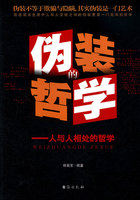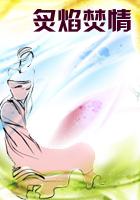Evans was then living in Delaware, where he was born, and where he later worked out his inventions in flour-milling machinery and invented and put into service the high-pressure steam engine.He appears to have moved to Philadelphia about 1790, the year of Franklin's death and of the Federal Patent Act; and, as we have seen, the third patent issued by the Government at Philadelphia was granted to him.About this time he became absorbed in the hard work of writing a book, the "Millwright and Miller's Guide", which he published in 1795, but at a heavy sacrifice to himself in time and money.A few years later he had an established engine works in Philadelphia and was making steam engines of his own type that performed their work satisfactorily.
The Oruktor Amphibolos, or Amphibious Digger, which came out of his shop in 1804, was a steamdriven machine made to the order of the Philadelphia Board of Health for dredging and cleaning the docks of the city.It was designed, as its name suggests, for service either in water or on shore.It propelled itself across the city to the river front, puffing and throwing off clouds of steam and making quite a sensation on the streets.
Evans had never forgotten his dream of the "steam wagon." His Oruktor had no sooner begun puffing than he offered to make for the Philadelphia and Lancaster Turnpike Company steamdriven carriages to take the place of their six-horse Conestoga wagons, promising to treble their profits.But the directors of the road were conservative men and his arguments fell on deaf ears.
In the same year Evans petitioned Congress for an extension of the patent on his flour-milling machinery, which was about to expire.He had derived little profit from this important invention, as the new machinery made its way very slowly, but every year more and more millers were using it and Evans received royalties from them.He felt sure that Congress would renew his patent, and, with great expectations for the future, he announced a new book in preparation by himself to be called "The Young Engineer's Guide".It was to give the most thorough treatment to the subject of the steam engine, with a profusion of drawings to illustrate the text.But Evans reckoned without the millers who were opposing his petition.Though they were profiting by his invention, they were unwilling to pay him anything, and they succeeded in having his bill in Congress defeated.It was a hard blow for the struggling author and inventor.His income cut off, he was obliged to reduce the scale of his book "and to omit many of the illustrations he had promised." He wrote the sad story into the name of the book.It came out under the title of "The Abortion of the Young Engineer's Guide".
Four years later, when Congress restored and extended his patent, Evans felt that better days were ahead, but, as said already, he was too far ahead of his time to be understood and appreciated.
Incredulity, prejudice, and opposition were his portion as long as he lived.Nevertheless, he went on building good engines and had the satisfaction of seeing them in extensive use.His life came to an end as the result of what to him was the greatest possible tragedy.He was visiting New York City in 1819, when news came to him of the destruction by an incendiary of his beloved shops in Philadelphia.The shock was greater than he could bear.A stroke of apoplexy followed, from which he died.
The following prophecy, written by Oliver Evans and published in 1812, seventeen years before the practical use of the locomotive began, tells us something of the vision of this early American inventor:
"The time will come when people will travel in stages moved by steam engines from one city to another almost as fast as birds fly--fifteen to twenty miles an hour.Passing through the air with such velocity--changing the scenes in such rapid succession--will be the most exhilarating, delightful exercise.Acarriage will set out from Washington in the morning, and the passengers will breakfast at Baltimore, dine in Philadelphia, and sup at New York the same day.
"To accomplish this, two sets of railways will be laid so nearly level as not in any place to deviate more than two degrees from a horizontal line, made of wood or iron, on smooth paths of broken stone or gravel, with a rail to guide the carriages so that they may pass each other in different directions and travel by night as well as by day; and the passengers will sleep in these stages as comfortably as they do now in steam stage-boats."**Cited by Coleman Sellers, Ibid., p.13.
Another early advocate of steam carriages and railways was John Stevens, the rich inventor of Hoboken, who figures in the story of the steamboat.In February, 1812, Stevens addressed to the commissioners appointed by the State of New York to explore a route for the Erie Canal an elaborate memoir calculated to prove that railways would be much more in the public interest than the proposed canal.He wrote at the same time to Robert R.Livingston (who, as well as Robert Fulton, his partner in the steamboat, was one of the commissioners) requesting his influence in favor of railways.Livingston, having committed himself to the steamboat and holding a monopoly of navigation on the waters of New York State, could hardly be expected to give a willing ear to a rival scheme, and no one then seems to have dreamed that both canal and railway would ultimately be needed.Livingston, however, was an enlightened statesman, one of the ablest men of his day.He had played a prominent part in the affairs of the Revolution and in the ratification of the Constitution; had known Franklin and Washington and had negotiated with Napoleon the Louisiana Purchase.His reply to Stevens is a good statement of the objections to the railway, as seen at the time, and of the public attitude towards it.
Robert R.Livingston to John Stevens "Albany, 11th March, 1812.















